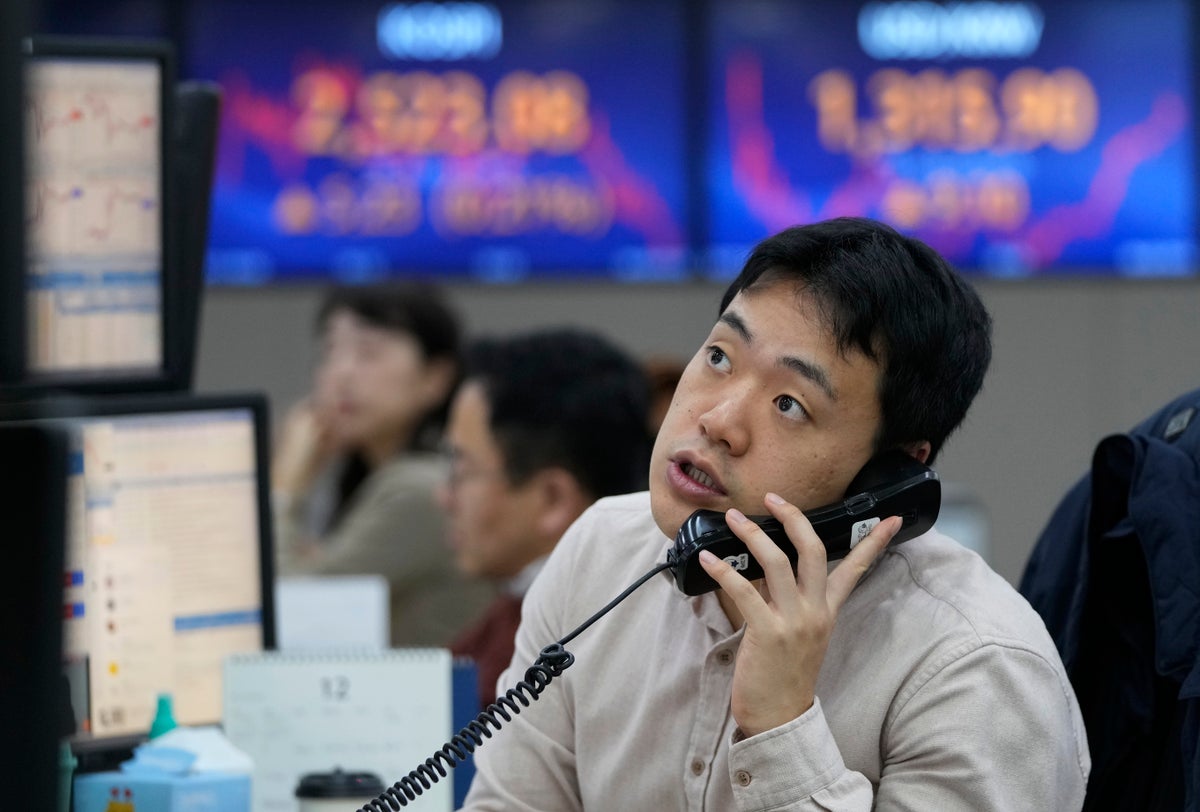
Asian shares were mixed on Monday after Wall Street reached a 20-month high ahead of a week that includes essential U.S. inflation data and the Federal Reserve's final rate decision of the year.
U.S. futures were lower and oil prices rose to recover some of their sharp losses in recent months.
Hong Kong’s Hang Seng sank 2% to 16,012.42 and the Shanghai Composite slipped 0.6% to 2,952.57.
In China, leaders agreed at an annual planning meeting last week to boost spending to accelerate the world’s second-largest economy, though details of policy changes were not provided.
Despite the Chinese economy expanding by around 5% this year, in line with government targets, the recovery following the lifting of strict COVID-19 restrictions was short-lived, and a slowdown is expected next year. Data released on Saturday showed China’s consumer prices in November experienced their steepest fall in three years, in another sigh of weakness.
Tokyo’s Nikkei 225 index gained 1.6% to 32,817.61 while the Kospi in Seoul lost 0.1% to 2,514.56. Australia’s S&P/ASX 200 was virtually unchanged.
India’s Sensex was 0.4% higher and Bangkok’s SET added 0.2%.
On Friday, the S&P 500 climbed to its best level in 20 months following a stronger-than-expected report on the U.S. job market. It rose 0.4% to 4,604.37, enough to clinch a sixth straight winning week for the index.
That's its longest such streak in four years. Wall Street’s main measure of health is now just 4% below its record set at the start of last year.
The Dow Jones Industrial Average rose 0.4% to 36,247.87, and the Nasdaq composite gained 0.4% to 14,403.97.
Yields rose more sharply in the bond market following the report, which said U.S. employers added more jobs last month than economists expected. Workers’ wages also rose more than expected, and the unemployment rate unexpectedly improved.
The strong data have kept at bay worries about a possible recession, at least for a while longer, and stocks of some companies whose profits are closely tied to the strength of the economy rallied. Energy-related stocks had the biggest gain of the 11 sectors that make up the S&P 500, rising 1.1% as oil prices strengthened amid hopes for more demand for fuel.
Carrier Global climbed 4.5% for one of the market’s bigger gains after it said it agreed to sell its security business, Global Access Solutions, to Honeywell for $4.95 billion.
Google’s parent company, Alphabet, slipped 1.4% and was the heaviest weight on the S&P 500. A day earlier, it had leaped amid excitement about the launch of its latest artificial-intelligence offering. Other Big Tech stocks were stronger, with Nvidia, Apple and Microsoft all rising.
Also on the losing end was RH. The home furnishings company slumped 14% after reporting weaker results for the latest quarter than analysts expected.
The Fed will will announce its next move on interest rates on Wednesday. On Tuesday, the U.S. government will report on U.S. consumer inflation.
A separate preliminary report on Friday offered more encouragement. It said that U.S. consumers’ expectations for inflation in the coming year dropped to 3.1% from 4.5% a month earlier, the lowest since March 2021. The Fed has said it pays attention to such expectations, fearing a rise could lead to a vicious cycle that keeps inflation high.
In the oil market, a barrel of benchmark U.S. oil gained 40 cents to $71.63, though it’s still more than $20 below where it was in September. It’s been tumbling on worries that demand from the global economy won’t be strong enough to absorb all the world’s available supplies.
Brent crude, the international standard, rose 45 cents to $76.29 per barrel.
In currency dealings, the U.S. dollar rose to 145.40 Japanese yen from 144.93 yen. The euro gained to $1.0766 from $1.0761.







